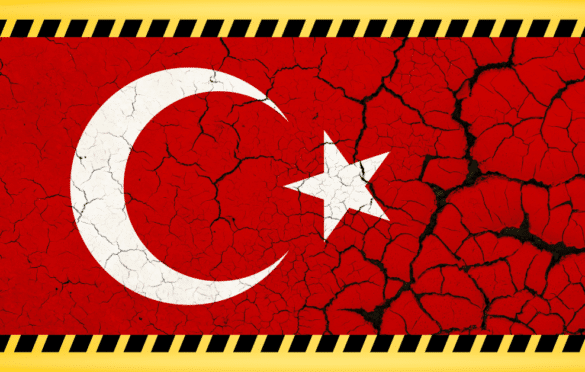The crisis in Turkey is going out of control. It began after President Recep Tayyip Erdogan defended recent interest rate cuts. He suggested pursuing a weaker currency to encourage growth. In his words, “the competitive force of the exchange rates leads to increase in investment, production, and employment.” The following day the currency dropped by 15%, the worst in years. Following this, protests erupted in various parts of Istanbul and Ankara. He went on to say that Turkey is experiencing an “economic war of independence.”
Despite a reported inflation rate of about 20%, the central bank has lowered interest rates by a total of four percentage points since September, egged on by Mr. Erdogan, who has fired three of its governors in less than three years. This has resulted in a 40% loss in the lira against the dollar, all within a matter of a year.
We must suppose that the president has a method with the madness he expresses to the masses. According to Selva Demiralp of Koc University, a weak currency and negative real interest rates may benefit borrowers who do not have foreign-currency debt. Along with exporters who do not have to rely on foreign suppliers and the construction industry. However, practically everyone else will be harmed. Because the economic situation is so uncertain, many potential investors will hesitate to take out loans.
Suppose a weak currency is what the people want. The Turks will be wondering why. The central bank has gone through $165bn to get the lira to go up in value for close to two years.
Ali Babacan says, “After the exchange rate explodes and everything gets more expensive, the government says it knows what it is doing and that now we will grow because exports will increase.” He is now the head of Deva, an opposition party. He concluded, “it’s like falling off your house and saying you were going to dismount anyway.”
To our surprise, Mr. Erdogan has put his conviction to the test. This contradicts common economic wisdom, believing that decreasing rates is the best approach to combat inflation. His strategy is risking putting Turks into poverty. Many are not able to afford meat or essential household products.
The minimum wage has gone from $380 monthly to approximately $220 per month. This was to cause foreign companies to move their production industries to Turkey. One member of the ruling party’s parliament proposed that Turks consider eating less.
Many people say they don’t see a future in Turkey. Countless doctors have moved to Germany, and about 8,000 more are planning on going in their footsteps.
Turkey has previously experienced a currency crisis. Mr. Erdogan finally caved in and allowed the central bank to hike rates on a few occasions, most notably late last year. He seemed to be adamant about holding out this time. Ordinary Turks will continue to bear the consequences. Mr. Erdogan likes to remark, “Interest is the cause, and inflation is the outcome.” The president is the underlying cause, and the outcome is a shattered economy.

